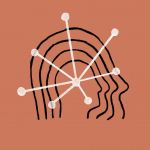New partnership between Anthropic and Canva: design without a designer

Anthropic company introduced an update for its assistant Claude. Which can now create and edit projects directly in the popular Canva platform.
If you connect accounts of both services, you’ll be able to control design with simple text commands. Want to create a presentation? Just ask Claude. Need to change image sizes or fill a template? Describe the task in words. The assistant can even search for keywords in your Canva documents and presentations.
At the core of this technological alliance lies the Model Context Protocol. This open standard is often called “USB-C for AI applications”. It ensures secure access for Claude to your content in Canva and simplifies connecting AI models to other services.
Canva’s ecosystem head Anwar Hanif noted that users can now generate, edit and publish designs directly in chat with Claude. Without the need to manually upload files.
To use the new capabilities, you’ll need paid subscriptions to both services. Canva – from $15 per month. And Claude – for $17 per month.
AIvengo >
Reviews >
New partnership between Anthropic and Canva: design without a designer
Почитать из последнего

UBTech will send Walker S2 robots to serve on China's border for $37 million
Chinese company UBTech won a contract for $37 million. And will send humanoid robots Walker S2 to serve on China's border with Vietnam. South China Morning Post reports that the robots will interact with tourists and staff, perform logistics operations, inspect cargo and patrol the area. And characteristically — they can independently change their battery.

AI chatbots generate content that exacerbates eating disorders
A joint study by Stanford University and the Center for Democracy and Technology showed a disturbing picture. Chatbots with artificial intelligence pose a serious risk to people with eating disorders. Scientists warn that neural networks hand out harmful advice about diets. They suggest ways to hide the disorder and generate "inspiring weight loss content" that worsens the problem.

OpenAGI released the Lux model that overtakes Google and OpenAI
Startup OpenAGI released the Lux model for computer control and claims this is a breakthrough. According to benchmarks, the model overtakes analogues from Google, OpenAI and Anthropic by a whole generation. Moreover, it works faster. About 1 second per step instead of 3 seconds for competitors. And 10 times cheaper in cost per processing 1 token.






